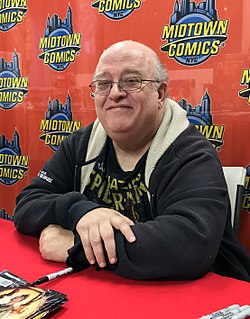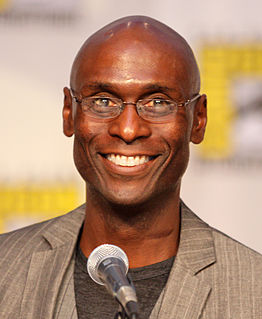A Quote by Leigh Michaels
Real life isn't required to be logical, but fiction has to make sense.
Related Quotes
Truth usually makes no sense. If your desire is for everything to make perfect sense, then you should take refuge in fiction. In fiction, all threads tie together in a neat bow and everything moves smoothly from one point to the next to the next. In real life, though... nothing makes sense. Bad things happen to good people. The pious die young while the wicked live until old age. War, famine, pestilence, death all occur randomly and senselessly and leave us more often than not scratching our heads and hurling the question 'why?' into a void that provides no answers.
You can tell a book is real when your heart beats faster. Real books make you sweat. Cry, if no one is looking. Real books help you make sense of your crazy life. Real books tell it true, don't hold back and make you stronger. But most of all, real books give you hope. Because it's not always going to be like this and books-the good ones, the ones-show you how to make it better. Now.
When I taught at the University of Houston in the Creative Writing program we required the poets to take workshops in fiction writing and we required the fiction writers to take workshops in poetry. And the reason for that is because the fiction writers seemed to need to learn how to pay greater attention to language itself, to the way that language works.
Satan frequently steals the will of God from us due to reasoning. The Lord may direct us to do a certain thing, but if it does not make sense - if it is not logical - we may be tempted to disregard it. What God leads a person to do does not always make logical sense to his mind. His spirit may affirm it and His mind reject it, especially if it would be out of the ordinary or unpleasant or if it would require personal sacrifice or discomfort.



































